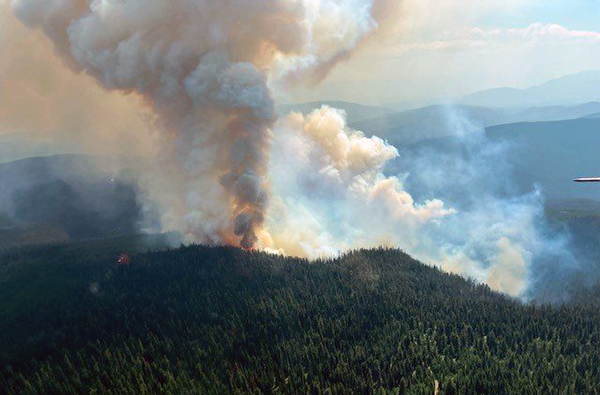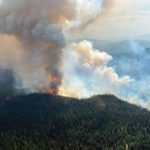Home »

B.C. reflects on another year fighting wildfires
In 2024, the BC Wildfire Service worked with people and communities to fight wildfires and build climate resiliency throughout B.C.
Since April 1, 2024, a total of 1,688 wildfires resulted in approximately 1.08 million hectares burned. More than 70% of wildfires this season were caused by lightning, while slightly fewer than 30% were attributed to human activity. A small percentage remains undetermined.
“I want to thank the hardworking members of the BC Wildfire Service who put their lives on the line every day to protect British Columbians and their communities from the devastating impact of wildfires,” said Ravi Parmar, Minister of Forests. “Their dedication and bravery are nothing short of extraordinary, especially as wildfire seasons grow longer and more intense, putting greater pressure on people, ecosystems and communities.”
The growing impact of climate change is creating more demand for advanced wildfire strategies in rural and remote communities. Building on the recommendations of the Premier’s Expert Task Force on Emergencies, the BC Wildfire Service is working in partnership with trained local community members who are interested in supporting response efforts around their communities, a Ministry of Emergency Management and Climate Readiness media release stated.
In 2024, there were 51 evacuation orders, which affected more than 4,100 properties, and 112 evacuation alerts, which affected more than 11,600 properties.
“People’s lives are increasingly being impacted by the effects of climate change and we must be proactive in how we prepare for climate-driven emergencies,” said Kelly Greene, Minister of Emergency Management and Climate Readiness. “We have applied lessons learned from 2023 wildfires by introducing flexible supports for evacuees, making it easier for people to receive those supports and improving preparedness tools. Our first priority is to ensure that people and communities have the tools and resources they need to stay safe during emergencies.”
The province is expanding the number of firefighting tools available to crews to provide broader response capabilities. Throughout 2024, upgrades were made to firefighting equipment and fire-camp infrastructure, which are critical to the safety and well-being of wildland firefighters, the ministry said.
Additionally, the BC Wildfire Service purchased and used more on-the-ground firefighting equipment, such as pumps, fire-camp equipment and safety gear, as well as medical and hygiene equipment.
This year, a wildfire training and education centre was announced. A first-of-its-kind in North America, the centre is a partnership with Thompson Rivers University in Kamloops. The program will offer comprehensive wildfire training and education, progressing from basic field skills to academic diploma and degree programs in wildfire and emergency management disciplines.
The dedicated wildfire program will offer career development pathways in wildfire management for B.C.’s future wildland firefighters.
BC Wildfire Service file photo
e-KNOW







